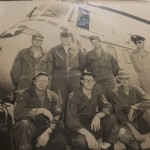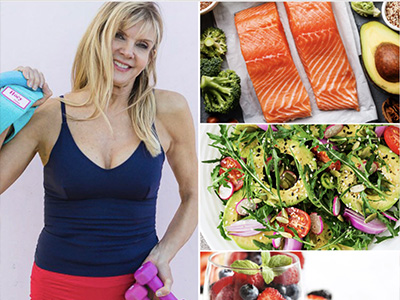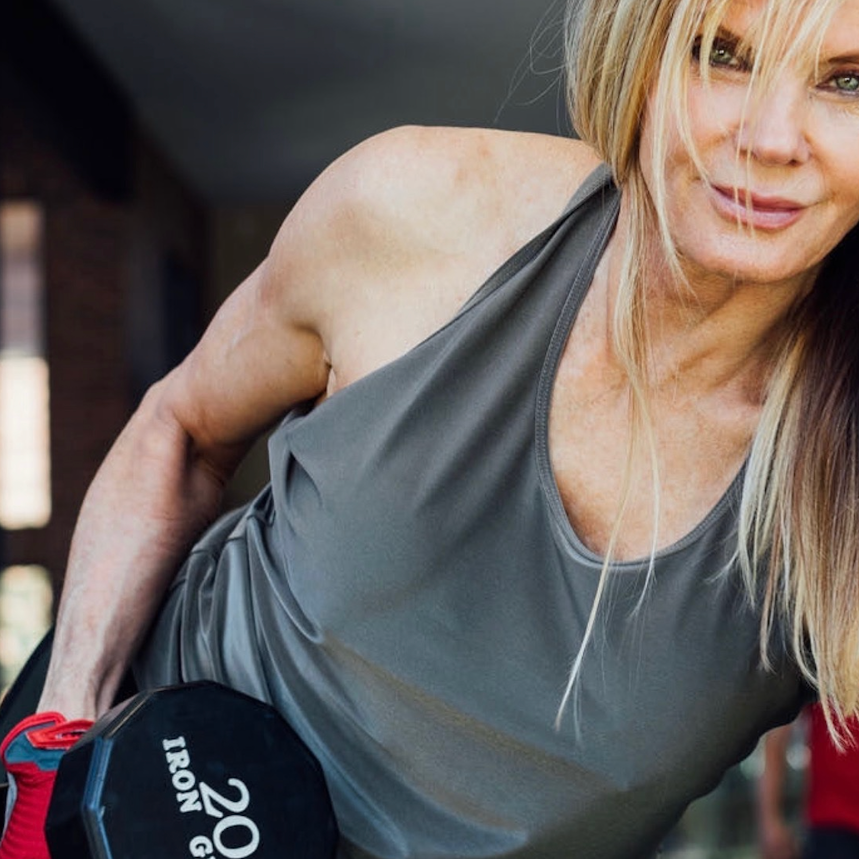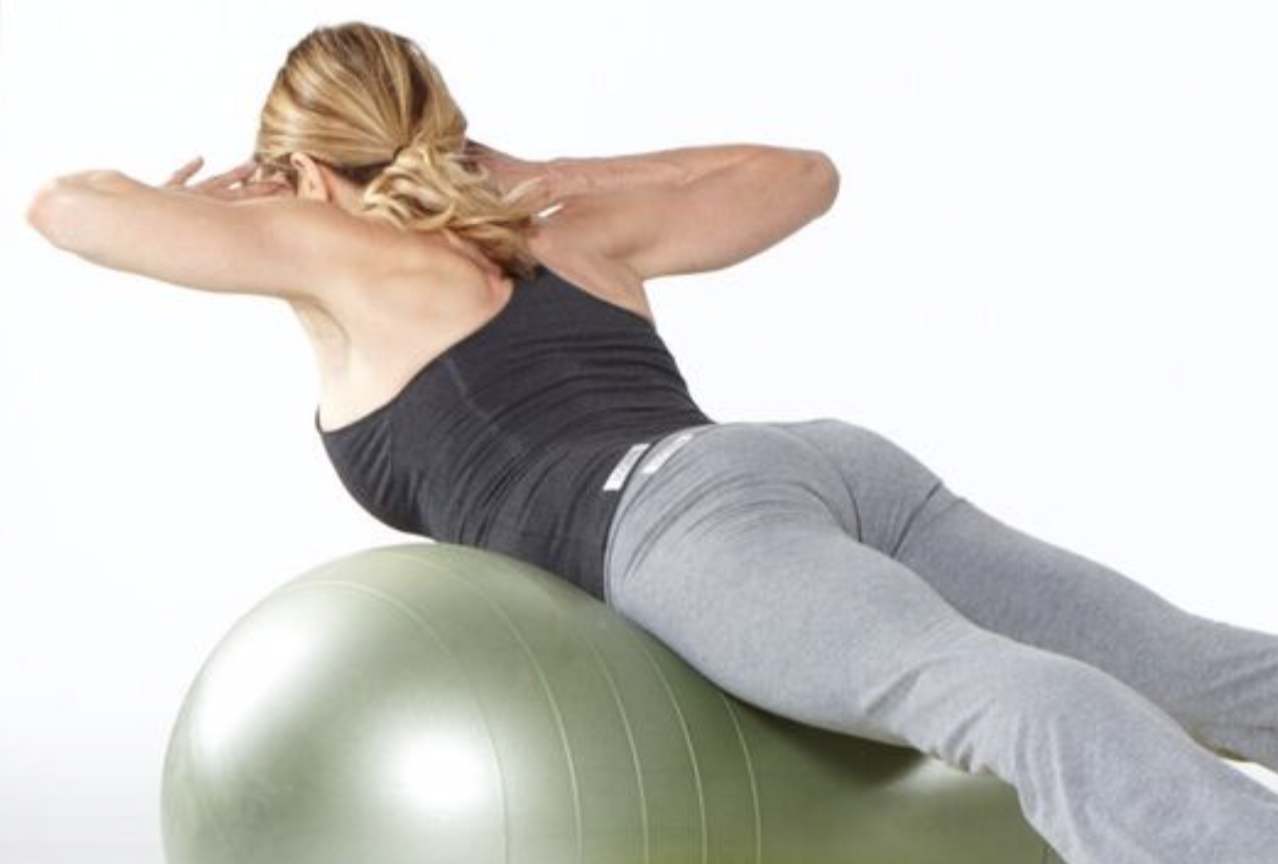Episode 16 | Kate Grace | Releasing The Champion Within
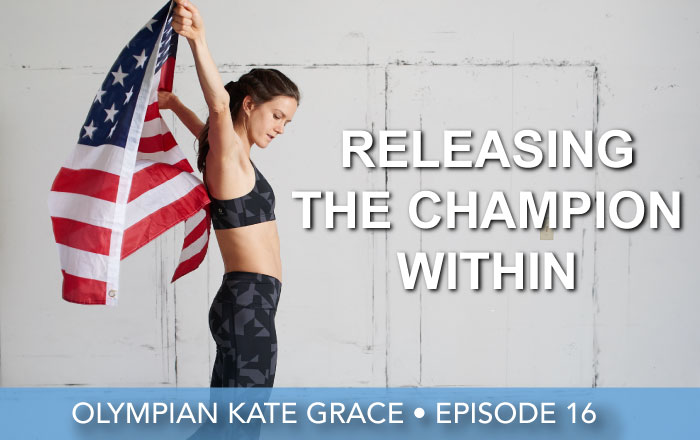
LISTEN…CLICK PLAY!
Why you should listen –
When you’re young, you might dream of being an Olympian. But you can’t just wake up one day, snap your fingers, and then pick up your gold medal. It takes years, and even decades of practice in the pool, on the court or on the track. In Malcom Galdwell’s book, Outliers, he mentions that to be a master at anything, you need to dedicate at least 10,000 hours to it. And along with those hours of practice, there’s also a lot of sacrifices to achieve the title that few people on earth can call themselves…an OLYMPIAN. And yet today’s podcast guest is that.
Her name is Kate Grace.
She’s a professional track and field athlete, specializing in the 800 meter. For most of her career, she’s been the underdog…the dark horse. But all of that changed this year at the Olympic Trials. Not only did she win first place in the 800 m to qualify her for a spot on the Olympic Team, but once in Rio, she made it through the prelims and semi-finals, and represented the United States in the Olympic FINALS!! And most importantly, she’s my oldest daughter, and she made her workout debut in some of my early videos.
By the way, thank you to everybody on Facebook who sent in questions for Kate. In this 30-minute interview, I asked many of your questions.
In this episode, we delve into the method behind the magic of the Olympic journey, including the following questions:
- How do you focus your mind in the midst of chaos, on the track and in life?
- What’s BEST time of day to eat carbs?
- Do you ever have bad workout days?
- How do you stay motivated to workout when you feel out of gas?
FAMILIAR WITH PODCASTS? LISTEN ON iTUNES!
Follow Along With The Highlights
Kathy Smith: Kate, welcome and congratulations. It was so much fun being in Rio and seeing your goal to finish in the finals.
Kate Grace: Hi, Mama. It’s so good to be here. I’m so happy to be talking to you.
Kathy Smith: Yeah, it’s fun for me too. And it’s a first. We’ve had a lot of firsts in our lives, but our first podcast together.
Let’s go back a little bit. About a couple of months ago, we were at the trials in Eugene, Oregon where you were surrounded by friends, family, your sister, Perrie, your Dad, Steve, all your other fan girls were there. At the trials, you were really among the best of the best in the country, competing to see who’s going go to the Olympics. There you were–and for people on the podcast that don’t know much about track, 800 meters is twice around the track. So, there you are on the last 200 meters of that second lap and you’re pulling into the lead and, then, you finish in first place.
Kathy Smith: Now, at that moment, you’re officially called an Olympian. What was going through your head? What was going through it when you crossed that finish line and when you knew you were headed to Rio?
Kate Grace: If anyone sees the video, you can see that I stop and I don’t do anything. In my mind, when I’m visualizing this moment over and over again in the months leading up to it, I visualized myself immediately crying and screaming. At the time, I don’t do anything. I just kind of stand there, and I’m almost acting embarrassed. I think I was a little bit in shock.
Basically, I was in shock and, then, I look up in the stands and actually, you were the first person because you were there and had a seat right on the finish line. I saw you and this warm feeling came over me. It was like the dream was actually a reality.
Finally, when I was able to get around to see my friends–my sponsor was there with a ton of athletes–that I could finally start screaming and actually celebrate and see you and all the tears came.
For the first few moments, it was this crazy–I had no action to describe the feeling of the dream coming true.
Kathy Smith: Yeah. Do you know it was great watching you go around and do your victory lap. Because you’re right. You’re going around the field and the field in Eugene–it’s Hayward, right? Hayward Square?
Kate Grace: Yeah. Hayward Field.
Kathy Smith: Yeah, Hayward Field. It’s great because you have all the people that were close to you through the years, and one of the things that you see come to life in that moment is whether it’s your elementary, your high school, your college, coaches, people, support, sponsors like Oiselle, they’re all there. It’s kind of this idea that it takes a village. You got to run across the finish line, but at the same time all those people through the years that supported you along the way and that connection you had with all of them.
Kate Grace: Exactly. It is one of those things. That is one race and kind of the pinnacle of a performance of years of work, but yeah, my college coach was there. We had the Pezzners, who are family friends, who would see me running around on Fourth of July weekends when I was five years old, people who just have had great influences on my life – either with running or creating me as a person. They all go into that.
You’re right. I said, even in my little interview afterwards about the Malcolm Gladwell theory, that it takes 10,000 hours of work to get somewhere. What that means is you need family, you need friends who are going to support you through those 10,000 hours. That means that’s time that you’re not focusing on, maybe, another job or not having to do all your training and all your recovery. So, I had so many people who were supporting me throughout the years so I could get to that point.
Kathy Smith: I want to throw this in. Or making your bed.
Kate Grace: Well, I guess, maybe I should have [overlapping speech 00:06:27]. I don’t know if I can use that as an excuse. But, yeah, exactly. Or like on Christmas vacations with you guys. I would be home for Christmas, but then, I’d have to go out and do a run or do a double or something when I wanted to be spending more time with family. So, to be able to celebrate all of that work and celebrate all of the sacrifices that we all made, that was a special part to be able to arrive with all of you guys.
Kathy Smith: We all know that having a dream and setting a goal, it’s a great place to start, whether you’re trying to get to the Olympics or you’re trying to write a book or in business or whatever. Eventually having that goal, then you have to turn it into action. So, when did you actually set a goal on going to the Olympics and what were some of the steps along the way that kept you focused in getting to that goal?
Kate Grace: I actually verbalized the goal at the previous trials. When I was younger, I would see myself writing, like, what you want to be when you grow up. I would say Olympian in there, but I also would say scientist and other things. It wasn’t necessarily that this was my only path. I just started running post-collegiately and I went to the 2012 trials. You were there, Mom. I didn’t do very well. I was really nervous. I didn’t understand what it meant to train at a high level and I basically got out in the first round. I was one of the last place finishers at the trials in 2012.
At that point, I was pretty discouraged that I was so far from where I wanted to be, but I also had this vision that I knew that if I dedicated myself to this and if I spent the next four years trying to get to the top that it was possible. So, at that point, I committed myself to seeing what I could do. Over the course of the next year, I did verbalize, “Yes, I know I can meet the top. I want to in the Olympics.”
Even at that point, I set the goals, but I’m also a big believer in taking small, daily steps toward excellence and passionate pursuit of short-term goals. So, I have a big goal. It’s four years, but I need to split that up into very manageable chunks. Otherwise, it’s–even for me, I would never–you know me, I would just procrastinate. I wouldn’t get there, right? I would put it off. So, I need to be able to, every day, put a structure in place where every day I’m hitting a workout or I’m meeting a coach or I have different, smaller races. That’s really the only way that, then, I can slowly add up the days and the hours that would lead to 2016, making it to the team.
Kathy Smith: I sort of promised myself that I was going to act as a host of the show here as opposed to your mom, but I do have to say that I think it’s interesting for people to hear that through the course of this path that you went on–I mean, one of Kate’s characteristics is she is a big procrastinator. It was one of the things throughout the years that whenever we would have our mother/daughter kind of butting heads, it was about something she had promised to do or said she was going to do or wasn’t doing, and I think it’s important for people to hear that – other young people, other parents – about their kids, because I think the idea is that there is this goal, you set it, you stick to it, you have a path.
I really think it’s important to understand that along that path, there’s a lot of setbacks. There’s a lot of things that don’t go right. There’s a lot of things that you fail at or, as you said, you come in maybe last in something. What I’ve noticed is that that spirit with you that you can kind of brush it off a bit and refocus, recommit and keep going as opposed to throwing in the towel or giving up. I think that’s a big part of your success as I’ve watched you over the years.
Kate Grace: Well, thank you. I think there’s a lot of mental training, a lot of stuff that you and I even did when I was younger that I didn’t even realize at the time was helping, which is helping build a resiliency, and I’ve worked on that so much over the last four years.
Kathy Smith: Yeah, let’s talk about that a little bit. Let’s get into that, because I find it fascinating. It’s one of the things that’s helped me in my life as far as focus, purpose, concentration, dealing with setbacks. Different people have, whether they want to call it a spiritual practice, whether they want to call it–some people have meditation, some people have focusing techniques, but I know through the years, you’ve crafted a certain way of keeping yourself on track with all of the things that–the negative self-talk that can come up, the managing expectations or the biggest one, which I think we’ve all experienced. Anybody that’s been on stage or had to get up in front of three people and give a presentation, that performance anxiety that can take over.
I can’t even imagine what it must be–actually putting ourselves back in Rio and I watched you get in that starting position. For people that don’t know track, you lean forward. One hand is on one leg and the other hand’s a little behind you. All of a sudden, it’s kind of like the launching of the space shuttle. It’s three, two and boom. All I’m going through is, oh, shoot. What is she thinking about right now? So, what are you thinking about at that point?
Kate Grace: It’s this funny lead-up because up until that point, I’m trying to stay really calm. If you’re getting really nervous minutes before, that’s going to almost take away your power. You want to bottle up all of your adrenalin. Up until that lift-off is just a lot of meditation that you and I–even back when I was starting out as a high school runner, I remember you would take me out on walks to the beach and I would work on calming myself. I’m not getting overly nervous.
Only recently have I been, I think, I’ve hit a next level with that. Because it’s not only meditating. There’s a trick to getting yourself down and calm, but you also want to stay awake. You also want to stay really, really, really present. So, I think at one point, I almost went too far.
Over the past few years, I went almost too far in being calm and to the point where I didn’t care or I wasn’t, then, able to get hyped up and be aware and competitive in a race. So, I think my next level was, then, being so present that you’re able to be Zen beforehand but, also, once it starts, jump into action and react to anything that’s happening. So, I think that is something that I’ve been proud of to be able to have both ends of that spectrum, which are both parts of being present and I’m practicing mindfulness. It took me a while to realize that I didn’t have to just zone out in order to get out of the nerves. I could actually zone into the nerves.
Kathy Smith: Interesting concept. Do you find that you’re able to practice that in other areas of your life?
Kate Grace: Yeah. I think even with speaking, I get nervous now. I think I’ll always continue to work on this. This is something I look up to you with public speaking, now, with doing more interviews, I can tell I get nervous. I get all of the same feelings that I get before a race. You get sweaty, you’re not quite able to focus on the small tasks at hand, you get into this haze. If anything, I think I, now, have my techniques before a race that I, now, need to start practicing for other areas. Basically, it’s the meditation and, then, the ideas of being a discomfort master, which are two things I actually did learn from you that I take in.
Kathy Smith: Well, it’s one of the things just for listeners out there. Two people that I really respect and that I’ve turned Kate onto, I’ve done a podcast with both of them. If you want to learn more about how to become this discomfort master, which basically means stepping into uncomfortable situations and being present, you’ll want to listen to the Marc Schoen tape on that, which we’ll have liner notes about this. Also, Patrick Porter is another person that I really respect. His techniques of just, again, getting you in a relaxed situation when you need to calm your mind down and shift. I’ve used him through the years to just shift negative thinking into more positive places and it’s been really helpful for me. So, I think those two podcasts – Patrick Porter, Marc Schoen – would be great.
Kate’s mentioned through the last year how she’s used some of these techniques. What I want to switch over to–because our time is so limited here–I want to switch over to a lot of people–I want to get a real shout out to the people on Facebook, because part of the way that I crafted this Podcast is I asked people to send in questions they wanted to ask you. We got tons of questions, Kate. People are so interested and so excited and so supportive. It really has helped craft this interview today. I just want to make sure I get into some of these other areas.
So, maybe just the basics. People want to know–and I know it’s probably more involved than this–but training and I think the question, “Are you always in training mode,” or how does your mind work with training and how does your year look when it comes to–how do you train for yourself personally and how do you train for excellence?
Kate Grace: I agree. It was so fun looking through all the questions. For training, no, it’s not always one level. There’s a lot of peaks and valleys, slow builds, which, again, I think is key. And I’ve learned more and more how important that is to sustained health. Because really the biggest thing that allows people to train or allows you to get to a highest level, yes, it’s specific workouts, yes, it’s mind techniques and nutrition. But really, it’s staying healthy. Bottom line, if you’re not able to run or train, you’re not going to get in shape.
That, I think, is almost forgotten. It’s so obvious that you think that you don’t even think about – like, when you ask athletes what is their number one key to success. Really, it’s staying on your feet and being able to go out and go to the gym, staying not sick and not injured.
For me – and, Mom, you know, this – that was a big thing for me. It took me a few years of intermittent injury until I finally realized that, yes, number one above all else is make sure that you honor your body.
Part of that means is really sticking to those training cycles, peaks and valleys. Right now, for example, I’m off. I took a few weeks off of running and, then, a very unstructured program going back. So, you’re able to give your mind a break, your body a break. Right now, I’m in an off-cycle.
Basically, with the fall would be is doing a foundation. It’s all the building blocks. That’s not only for running. That’s also a lot more kind of functional dynamic movements, strengthening all the tendons and neuromuscular connections that it takes to run so, kind of, plyometric type stuff. I have a whole sheet of things that I do.
Also, a lot of stretching, making sure your body’s balanced, almost some techniques I take from yoga. So, in the fall, you’re building those foundations. I almost think of it as if you’re building a house, you need to put down all of that work in the bottom that you would never see once the finished product is done, but it’s necessary. Otherwise, the lights don’t turn on.
So, you’re doing all of that. Then, you’re also slowly building up mileage. But like anything, you don’t want to suddenly go to your peak performance. I’m doing different types of runs, slower runs, longer runs, not as much mileage. Then, I have two peaks in the season – one during indoor season and the main one is during outdoor season. And your workouts get different at that point in time. You’re always doing interval workouts also throughout the year, kind of sprinkled in. But you might do more speed stuff or hit different body systems so that when you actually get to the race, you’re firing on all cylinders. But you’re not doing the same workouts in the fall. If anything, I try to do those workouts in the fall, I would injure myself or just not be good at them.
It’s a good reminder that it’s not to get discouraged if certain workouts are hard or impossible at certain times of the year. That’s what it should be.
Kathy Smith: Let me ask you, because this is one of the questions we have. Do you ever have bad workout days or where you just feel like you’re totally out of gas and nothing in your body’s working? Do you ever have those kinds of days? If so, how do you get through them?
Kate Grace: Yes, definitely for some days. It’s a bigger part of it is listening to your body. So, if for some reason you start to get multiple of those in a row, it’s probably a sign that something’s a little bit off. There’s a virus. You’re maybe not recovering properly. I’m a big fan of working hard on workout days but, also, taking recovery days so maybe you’re doing something lighter, something more holistic or going for a really, really extremely slow run.
On that cycle, you need to make sure you are cycling through and not just hitting a high intensity workout every day. That’s it. If you are doing that and trust your schedule and you still have a bad day, then what I do is, I’m like, “Well, ok. I know I need to do this today.” I almost always use that as my goal for the day. I call it an ugly but effective day.
This is something that I took from the book, The Champion’s Mind, which is a great sports hype book I was reading all year. I’m, like, ok. This is going to be my ugly but effective. It doesn’t matter. I know it’s going to hurt, but you know what? The fact that I feel sucky, I’m going to get even more gains out of this because I’m also going to get the mental gain of knowing that even when I feel like crap, I’m still going to execute this to the best of my ability right now.
So, I’d keep this little sticky note in my car that would remind me if I was really tired but I had to do this workout that, yes, just getting through it even when you feel bad, that’s going to be the biggest gain for when you have the race. So, I have my ugly but effective days.
Then, the good thing is when I actually have to go perform, I actually write down the date and the specific workout so that I can remember. I’m like, yes, I remember. I did that workout. It’s now in my – I call it – my inner strength bank account and, now, I remember, “Ok, that day, I did my 300s. They felt like crap, but I finished them. And, you know what? This race isn’t going to be harder than that.”
Kathy Smith: So, you can draw on that bank account. I like that metaphor. Hey, listen. I want to get into eating, but I know in part of this recovery thing, obviously with all of us, sleep’s very important. I remember I got a call, in college, from you when you were in your freshman year and I’d say, “So, Kate, what time are you guys going to bed?” I kind of remember something like homework would start at 11:00, then there was social hour, there was homework. Bed was somewhere around–I would go, “Is it 1:00?”
You’d go, “No, Mom. A little later.”
“2:00?” I won’t even tell the audience what time it was, but all I know is thinking, “Oh, my gosh,” and I know you got yourself into a little trouble in that first year because of lack of sleep with falling ill and things and getting a little run down. We all need sleep. So, what’s your average right now? What are you averaging for sleep?
Kate Grace: When I’m training, I’m averaging between eight and nine. Right now, it’s a little bit less because I’m not, but I give myself that and, maybe, with a little bit of a catnap in the middle of the day if I’m really in a hard cycle.
Kathy Smith: So, what about eating? I know this is a whole subject in itself, but you’ve had an opportunity, now, to work with some of the top nutritionists in the country and you’ve been involved in even some research for sports nutrition. What would you say is maybe the biggest take away that you’ve learned about your eating as it relates to peak performance?
Kate Grace: For me, the biggest thing with athletic nutrition is the importance of timing. I was always thinking about what you’re eating and the quantity and the quality of food, but really, it was almost like timing is everything. It’s like, for real estate, it’s location, location, location. For athletic nutrition, it’s really about when you’re eating. So, basically a workout is you’re breaking down your muscles, you’re using your glycogen. You’re only going to get the benefit from that if you’re, then, able to build from it. The whole point is you’re making yourself stronger, but you need the fuel in order to do that. I think when I first started, I didn’t understand that.
Now, if I do any kind of an aerobic work, I get something in my system within 10 to 15 minutes. That’s the special time when your muscles are actually – it’s called glucose independent uptake. So, you don’t get the hit in your bloodstream of the glucose and, then, later the blood sugar crash. You just basically are slurping up–your muscles are slurping up any kind of carbohydrate and protein. Because of that, you actually can eat things that normally you wouldn’t want, or it would be almost more like a dessert, like the power bars or the energy bar type things that I normally wouldn’t want to eat because they would be too high on the glycemic index. Is that what it’s called?
Kathy Smith: Yeah, glycemic.
Kate Grace: After a workout, they’re exactly what you need and you need them within 10 to 15 minutes. It’s so important to me that even if I didn’t have anything, I would take literally whatever I could eat between 100 and 200 calories regardless of what it is.
Also, similar for me, for much more kind of aerobic work–because you’re using so much energy when you’re running that the importance of carb dosing. So, the idea that around your really hard workouts, during long runs, you need a lot of carbs for that, because that’s the energy source that you are using. So, a good breakfast beforehand like oatmeal. Then, at your next meal, maybe if you normally have about one serving of a carbohydrate, you would add one more serving.
Again, servings are whatever a normal serving of rice would be–what, a quarter cup of plain rice. So, it’s not like you’re going to go crazy and overeat afterwards. But you are aware that, yes, you probably need two servings of rice after my 90-minute run or two-hour run. So, the idea of carb dosing around hard workouts, the idea of eating right afterwards are two of my major things and the idea of never letting your blood sugar crash.
Runners call it hangry – hangry like hunger angry if you don’t eat for a long enough and your blood sugar starts to crash and you get that really irritated feel. That means that you’re not keeping this even supply of energy to your muscles. You never want that to happen, because that means that you’ve gone too far down. So, you want to be able to have small snacks very two to three hours so that you’re able to maintain an even supply of nutrients.
Kathy Smith: Yeah, being hangry, you don’t want to be around anybody when they’re hangry. Well, ok, I do want to mention you mentioned Oiselle earlier on, but Oiselle has been such a big support for you through the years. For our listeners, if you go to my Facebook page, we’ll have all of Kate’s information also with her Instagram and Twitter and all her followings. But everything that I wear is from Oiselle. I get so many complements. I actually have been wearing this one version of the shirt all week. Everybody that comes up, “What is that?”
So, why don’t you give us just 30 seconds on Oiselle and how much you love them, Kate.
Kate Grace: Oh, man, yeah. Oiselle’s been my primary sponsor for a full four years now. They’re a women’s athletic apparel company based in Seattle. I’m actually visiting Seattle right now. I just love the brand culture. It’s all about supporting female athletes of all types – basically, females who like to be athletic. It’s great clothes and just this really fun idea. We call them fan girls, but just the idea that it’s fun to support each other in our endeavors. There were so many people out there cheering for me in Eugene.
I’ll go to a local race or a local triathlon and go and cheer your heart out for somebody else who’s running. You realize the power of supporting other female runners makes the whole thing worthwhile. That’s been really fun just to be a part of the Oiselle team.
Kathy Smith: Yeah, it’s a team and it feels like a family also. Well, I hate to wrap it up but I just want to say that as a mom, I’m so proud of your accomplishments. You’ve always been so much more than an athlete. I see it every single day, but everybody else can see it now in the post-race interviews and they get a glimpse into your humility, your graciousness, this little fun personality that you have. So, I just want to thank you for being on the show, inspiring others. Give a shout out to your other sister, Perrie. I look forward to seeing you soon. I love you, Baby.
Kate Grace: I love you, Mom. Thank you so much for having me. It’s been a ball.




